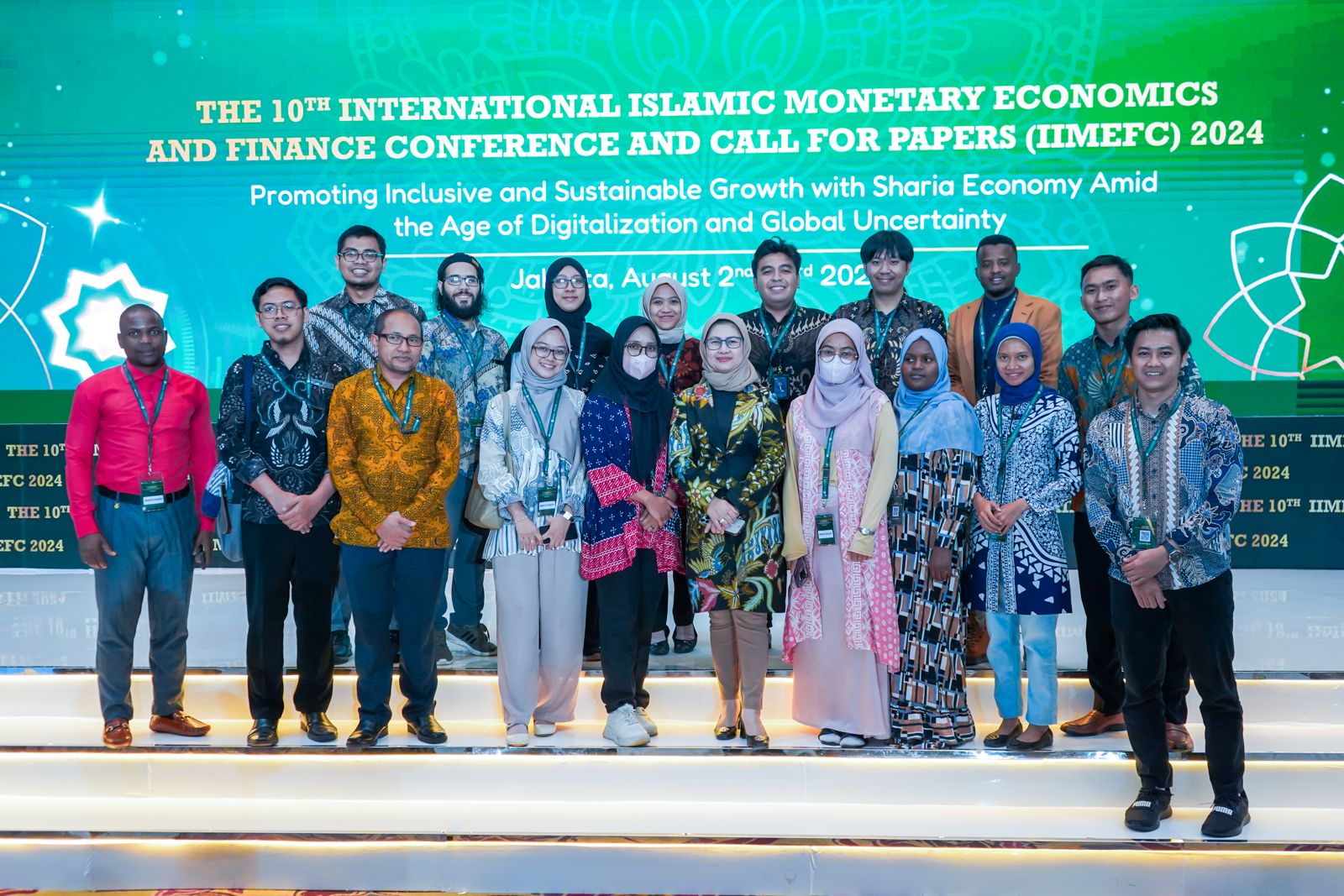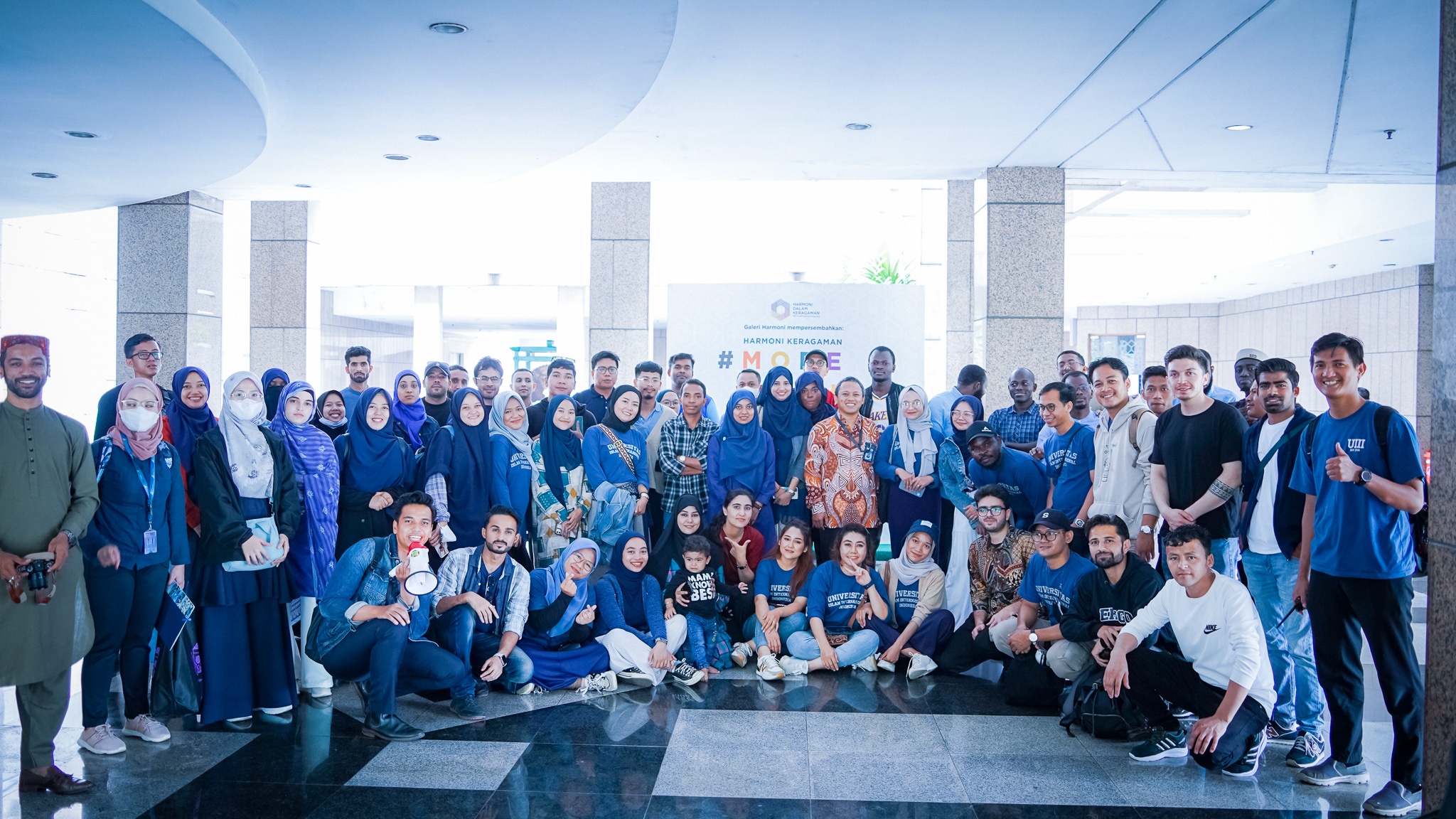UIII Students Visit DPR RI to Gain Insights on Policymaking
June 10, 2024Contributor: Intan Fasya Zahara | Editor: Supriyono

UIII, JAKARTA - On June 3, 2024, the third batch of MA in Education students of Universitas Islam Internasional Indonesia (UIII) visited the Indonesian House of Representatives, also known as DPR RI, in Senayan, Jakarta. The visit was part of the field trip agenda within the Educational Policy Analysis course, convened by Dr. Lukman Nul Hakim, a UIII lecturer and a former policy analyst in the parliament office.
Dr. Lukman Nul Hakim explained that the visit was aimed at offering students experience in a realistic understanding of the policy-making process while giving them inspiration for potential career pathways and prospects beyond the classroom's theoretical study.
At the event, the students had an exclusive session with the officials from the Center for Parliamentary Analysis (PUSAKA) which is one of the House of Representatives sections in charge of analysis, assistance, and exposure. This division is known as a medium between society and parliamentarians which greatly contributes to analyzing, assisting, and further exposing the facts and materials crucial for policy-making.
The PUSAKA Chairman, Mr. Achmad Sani Alhusain, enlightened the students about the legislative environment, discussing the history of the policy analysis division and the outcomes of initiatives. These include a simple analysis, weekly issues and a short analysis twice a week.
“Reviewing the process of adopting a law requires 575 parliamentary votes, comprising 51 lawmakers from nine different factions, with each member of the session having three opportunities to express their views,” Mr. Alhusain noted, while highlighting the critical and practical procedure, as well as the challenges, in the policymaking process.
During the session, students actively engaged in a discussion. Santi Ganiswari, from Lombok, inquired about decentralizing education and the need for a gender-related curriculum in Indonesia. In response to the question, PUSAKA Senior researcher Mrs. Sali Susiana explained that the national education law governs these issues. However, the practice has been hampered by challenges, saying that while the government aims for equal access to education, improvements are needed.
Furthermore, Karamo Ceesay, a student from Gambia, asked how policymakers ensure objectivity in their decision-making process, considering that everyone has a political stand. The practitioners explained that the analysts were deemed civil servants and should not express any political stance. The inquiry brought by Ceesay led to a discussion of the ethical considerations of being a policy analyst.
The overall visit was undoubtedly a remarkable experience for the students. “It was a very good trip because it availed us with the opportunity to interact with practitioners in the field of policy analysis and learned from them. Moreover, it also exposed us to the historical information of the Indonesian political evolution and its growth, which alone was splendid," Karamo Ceesay said.
Supporting the statement, Nasrullah, from Sulawesi, expressed his gratitude for the experience. "In the past, I could only see this building from the television, and now I am able to see it directly. This visit makes me understand the policymaking process and its considerations through a thorough explanation," he testified.
The trip concluded by touring inside the DPR RI buildings, visiting the museum displaying historical records, observing the plenary meeting room, and taking a class photo. Dr. Lukman Nul Hakim ended the trip by encouraging the students to gain inspiration from the trip, highlighting that the daily assignments that they have in the Educational Policy Analysis course, such as reflections, policy papers, or briefs, can prepare them to be competent policy analysts in the future.
- Finding Family Away from Home: Aamina’s Ramadhan Reflections
- United as One: A Glimpse of End-Year Festivities at UIII
- A Warm Tradition of UIII's Annual Christmas Dinner
- Helping New International Students Settle into the Vibrant Life at UIII
- A Gathering for Stronger Bonds and a Unified Vision of Student Union
- A Day in the Life of a UIII-Edinburgh Dual Degree Student in the UK
- An Inspiring Journey at Madania Progressive Indonesian School
- Who says that men cannot take charge of early childhood education?
- UIII Economics Students Gain Global Insights at Prestigious Islamic Finance Conference
- UIII Student Receives MOsMA Scholarship, Spends One Semester at University of Dundee, UK


